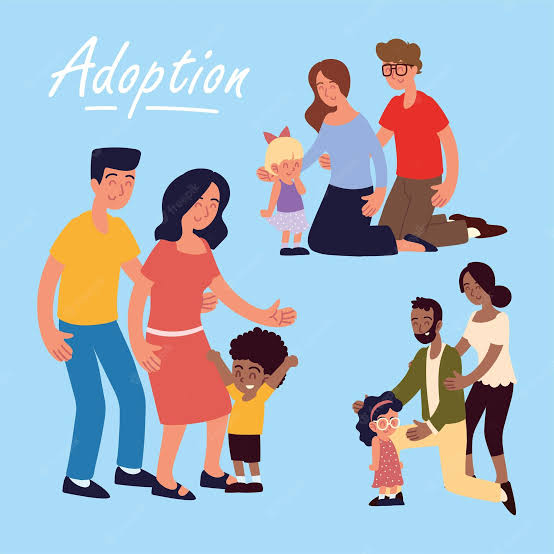Termination of Employment Relationship
By Mahlet Mesganaw, Partner at DMLF

The Ethiopian Labour Proclamation No 1156/2019(hereafter the Proclamation) governs the private sector employer-employee relationship. According to this labor Proclamation, employment relationships might be terminated in three ways namely by operation of the law, by agreement of the employee and employer and by the initiation of either the employer or the employee. A brief look on each of these employment termination conditions shall be the focus of this article.
Termination of contract of Employment by the Operations of the Law
The conditions under which a contract of employment is terminated by operation of the law are provided under Article 24 of the Proclamation. The grounds for termination by the law include a) on the completion of the work where the contract of employment is for a specified work; b) up on the death of the worker; c) up on the retirement of the worker in accordance with the relevant law; d)when the undertaking ceases operation permanently due to bankruptcy or for any other cause; and e) when the worker is unable to work due to partial or total permanent incapacity. Hence the existence of these five conditions guarantee the termination of the employment by operation of the law.
Termination of Contract of Employment by Agreement
The second way to terminate a contract of employment is by agreement of the employee and employer. The employee and employer may terminate their contract of employment by agreement. However, such an agreement cannot override the right an employee has under the labour law. Thus any agreement by the employee to waive any of his rights under the law shall have no legal effect. The legal format requirement for termination of employment by agreement is to make the agreement to terminate the employment relationship in writing. Otherwise oral agreement shall not be effective and binding on the employee.
Termination of Contract of Employment by the Initiation of the Parties

The third way of termination of an employment contract is by the initiation of the employer or the employee. The major parties to an employment agreement are the employer and employee. Either the employer or the employee may seek the termination of the employment contract. Thus we shall see the legal requirements and conditions under which the employer or employee initiates the termination of their contract of employment here below.
A)Termination of Contract of Employment by the Employer: An employer is entitled to terminate a contract of employment either without prior notice or with prior notice. Article 26 of the Labour Proclamation provides the principle under which a contract of employment is terminated by the employer. The article states ‘’a contract of employment may only be terminated where there are grounds attributed to the worker’s conduct or with objective circumstances arising from his ability to do his work or the organizational or operational requirements of the undertaking’’ . Thus termination of contract of employment by the employer can be executed either without prior notice or with prior notice.
i)Termination of Contract of Employment by the Employer without Prior Notice: The conditions under which an employer can terminate a contract of employment without prior notice i.e automatically when these conditions happen include the following a) unless the reason for being late is justified by the collective agreement, work rule or contract of employment, being late for duty eight times in six months period while being warned in writing of such a problem; b) absence from duty for a total five days in six months period while being warned in writing of such a problem; and where the absence cannot be classified in any of the leaves provided under the Proclamation; c) deceitful or fraudulent conduct in carrying out his duties; d) Misappropriation of the property or fund of the employer with intent to procure for himself or to a third person unlawful enrichment; e) performance result of a worker, despite his potential, is persistently below the qualities and quantities stipulated in the collective agreement or determined by the agreement of the parties; f) being responsible for brawls or quarrels at work, having regard to the gravity of the case; g) conviction for an offence where such conviction renders him incompatible for the post which he holds; h) being responsible for causing damage intentionally or through gross negligence to any property of the employer or to another property which is directly connected with the work of the Undertaking; i) commission of any of the prohibited acts under Article 14 (2) of this Proclamation namely Intentionally commit in the workplace any act which endangers life or property; take away property from the work place without the express authorization of the employer; making use of falsified document or an attempt thereof; to use drugs prohibited by law or use alcoholic beverges and have impared physical and mental status at the work place; except for HIV/AIDS test, refuse to submit himself for medical examination when required by law or by the employer for good cause; refuse to observe safety and accident prevention rules and to take the necessary safety precautions; conduct meeting during working hours in disregard to the time assigned by the collective agreement or without obtaining the permission of the employer; commit sexual harassment or sexual violence at workplace; and physically abuse anyone in a work place; j) absence from work due to a court sentence passed against the worker for more than Thirty days; k) commission of other violations stipulated in a collective agreement as grounds for terminating contract of employment without notice. These detailed conditions to terminate an employment contract by employer without prior notice are exhaustive. However, a collective agreement may include or exclude these conditions and the law gives priority to the conditions mentioned in the collective agreement.
Where an employer terminates a contract of employment without prior notice as per the conditions laid down above, the employer is required to render to the employee a written statement specifying the reasons for and the date of termination. The right of an employer to terminate a contract of employment without prior written notice has a period of limitation. The employer should take the decision to terminate within thirty working days from the date the employer knew the existence of a ground for the termination. Otherwise, the ground for termination without prior notice shall lapse after thirty working days.
ii)Termination of contract of Employment by Employer with Prior Notice: The following two grounds guarantee good cause to termination of employment of contract by employer with prior notice. The first ground as stated in Article 28(1) is ‘’.. the loss of capacity of, and situations affecting, the worker.’’ The second ground that constitutes good cause is attributable to the organizational or operational requirements of an undertaking.
With regard to the first ground, i.e. loss of capacity of the employee or the situation affecting the employee that substantiate as a good cause for termination with notice include: a) The worker’s manifest loss of capacity to perform the work to which he has been assigned; and his lack of skill to continue his work as a result of his refusal or inability to make use of an opportunity of training arranged by the employer to upgrade his skill or after having been trained, his inability to acquire the necessary skill; b) The worker is, for reasons of health or disability, permanently unable to carry out his obligation under the contract of employment; c) The worker’s unwillingness to move to a locality where the undertaking relocates; d) The post of the worker is canceled for good cause and the worker cannot be transferred to another job position.(Article 28(1)). However, to protect the employee and to impose a duty of proof on the employer, the condition under which the employee manifests loss of capacity to perform work referred as (a) above needs to be verified by a periodical job performance evaluation.
The second ground relates to the organizational or operational requirements of an undertaking. As per Article 28(3) such an organizational or operational requirement constitute good causes for the termination of a contract of employment with prior notice when a) any event which entails direct and permanent cessation of the worker’s activities in part or in whole resulting in the necessity of a terminating a contract of employment; b) ‘….fall in demand for the products or services of the employer resulting in the reduction of the volume of the work or profit of the undertaking and thereby requiring termination of a contract of employment; c) a decision to alter work methods or introduce new technology with a view to raise productivity resulting in termination of a contract of employment.
B) Termination of Contract of Employment by the Employee: Similar to an employer, an employee is entitled to terminate his/her employment contract either with prior notice or without prior notice. We shall look at each of them briefly.
i)Termination of Contract of Employment without prior notice: The employee can terminate his employment of contract without prior notice and such termination is considered as justified where a) the employer has committed any act contrary to human dignity and morals or other acts punishable under the Criminal Law against the worker; b) the workers has been a victim of sexual harassment or sexual violence by the employer or a managerial employee; c) In the case of imminent danger threatening the worker’s safety or health, where the employer, having been made aware of such danger, failed to act within the time limit in accordance with the early warning given by the competent authority or appropriatetrade union or the worker himself to avert the danger; d) the employer has repeatedly failed to fulfill his basic obligations towards the worker as prescribed under this Proclamation, collective agreement, work rules or other relevant laws. However, the employee cannot orally quit his work. The employee has to inform the employer in writing the reasons for termination and the date on which the termination is to take effect. In addition to the above, the employee’s right to terminate his contract of employment in accordance without prior notice shall lapse after fifteen working days from the date on which the act occurred or ceased to exist.
ii)Termination of Contract of Employment by Employee with Prior Notice: without prejudice to conditions mentioned as good cause for termination without notice, any employee who has completed his/her probation period may, by giving thirty days prior notice to the employer, terminate his/her contract of employment.
To sum up, the Ethiopian Labour Proclamation 1156/2019 incorporates termination of employment conditions either by operation of the law, by the agreement of the parties or by the initiation of the employer and employee. Where the majority of termination of employment occurs as a result of initiation by employer or employee, the law has put rules of conditions of termination with prior notice or without prior notice. What the law considers justified causes of termination of employment has also been exhaustively included in the labour law for both the employer and employee to take action accordingly.
For labour related legal issues you may contact us at info@dmethiolawyers.com





